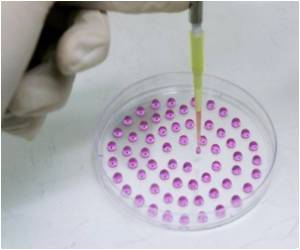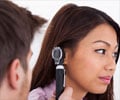
Sensorineural hearing loss is caused by the loss of sensory cells or neurons in the cochlea, the sensory organ of the inner ear responsible for hearing. The condition can have genetic causes, often arising during infancy and childhood, hindering cognitive development and leading to speech and language problems.
To investigate the effects of this treatment, nasal stem cells were injected into the cochlea of mice displaying symptoms of hearing loss. Mice were chosen for this treatment as they display a similar decline in hearing function following infancy.
"The authors have used an interesting type of adult stem cell, related to mesenchymal stem cells, to reduce the extent of hearing loss. Since the cells did not integrate into the cochlea, it is likely that the effects from the adult stem cells were due to the release of factors to preserve function of the endogenous stem cells. Mesenchymal stem cells are known to provide factors to keep many types of cells healthy and functioning," said Jan Nolta, Associate Editor of STEM CELLS.
Patient hearing levels were examined using the auditory brainstem response assay, which determines the lowest sound level to which the brain responds, known as the hearing threshold.
The mice, which received the transplanted cells, were compared to mice who had not received the treatment a month later, revealing that the hearing threshold level in stem cell-transplanted mice was significantly lower.
Advertisement
"These cells can be obtained easily from the nasal cavity making this transplantation a potential treatment for other human conditions including Parkinson's disease and cardiac infarction."
Advertisement
Source-ANI











